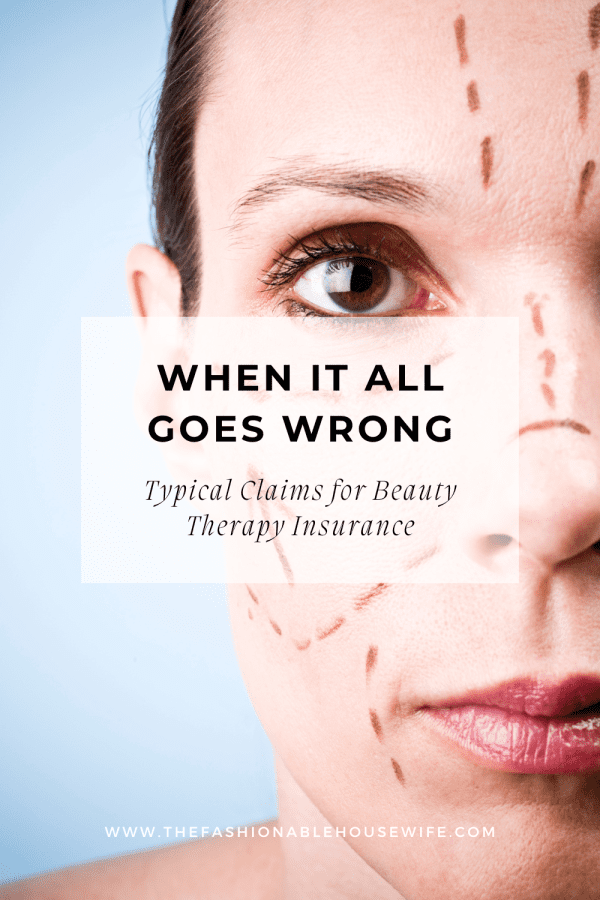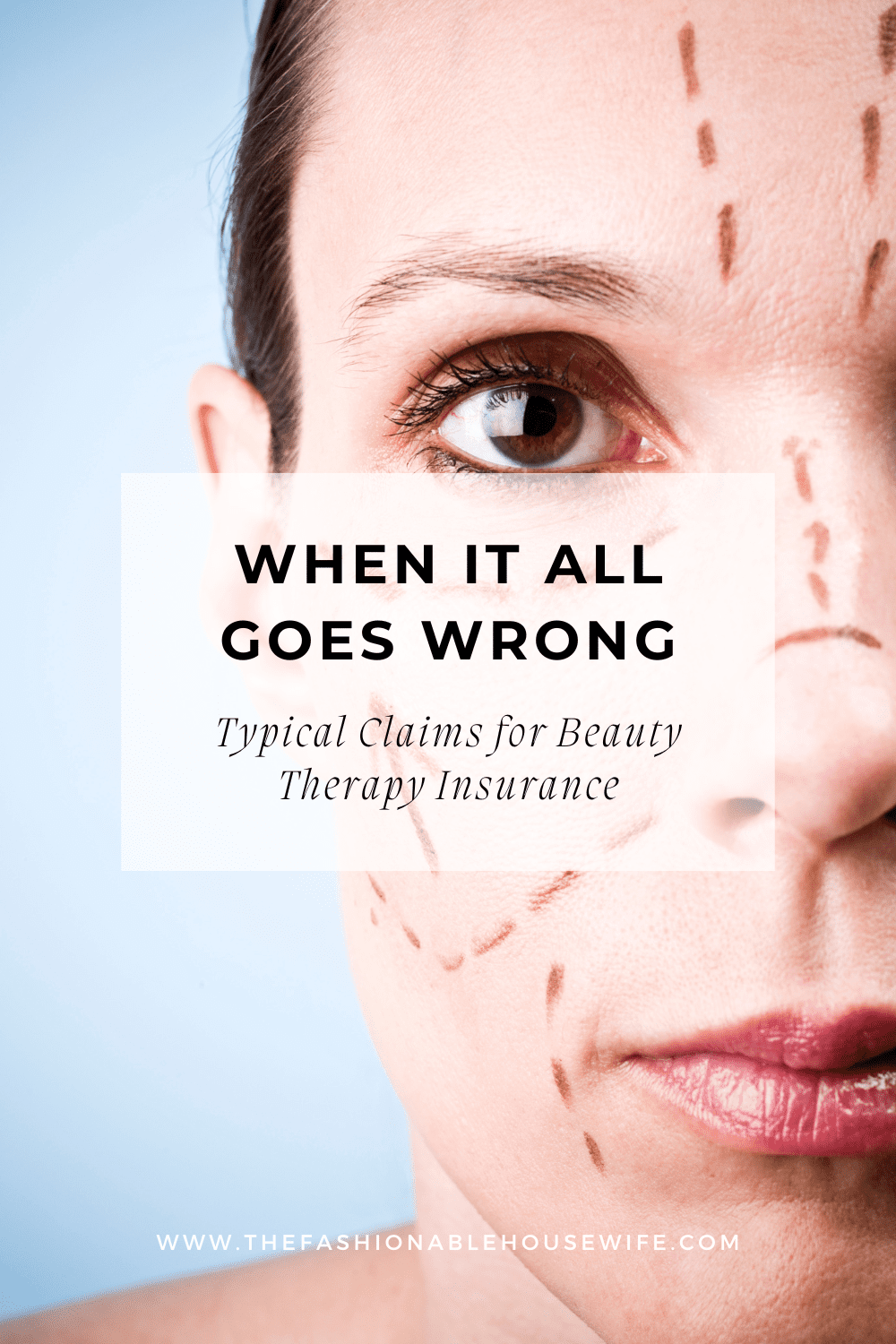When It All Goes Wrong: Typical Claims for Beauty Therapy Insurance

The field of beauty therapy continues to expand and provides a wide range of services, from sophisticated treatments to skincare. But rising popularity also means a higher chance of mishaps that could result in insurance claims. Beauticians can better control risks and safeguard their businesses by being aware of the most frequent claims. Here are five of the most common claims pertaining to beauty therapy insurance:
Allergic Reactions:
Allergy to products is one of the most prevalent claims in beauty therapy. Clients may still experience negative reactions to specific components in cosmetic products even after receiving extensive consultations and patch tests. These reactions might be anything from minor skin rashes to life-threatening allergic reactions like anaphylaxis. In cases where the client chooses to pursue legal action, claims pertaining to allergic reactions usually include payment for both possible legal fees and medical costs.
Beauty therapists should always conduct patch testing and maintain thorough records of client allergies and product usage in order to reduce this danger. Using hypoallergenic products and keeping up to date on the newest toxins in the market can also assist lessen the possibility of these kinds of claims. Quoteradar provides you with the extensive salon insurance that protects you from variety of situations.
Burns from Treatments:
Another common claim is burns, especially from heat- or chemical-based treatments like chemical peels, laser hair removal, and waxing. Burns can still occur even with the right training and safety measures, particularly if the client has sensitive skin or the equipment isn’t working properly.
Claims regarding burns frequently cover expenses for medical care, scarring, and psychological suffering. These events can be avoided by making sure that all equipment is calibrated and maintained on a regular basis, and that therapists are properly educated to use it. In order to reduce the chance of burns after clients leave the salon, it’s also essential to educate them about aftercare.
Infections Occurring After Operations:
Procedures which damage the skin, like microblading, dermal fillers, or microneedling, might leave people with infections. These claims usually occur when customers get infections as a result of inadequate aftercare instructions or incorrect tool sterilization. Infections can occasionally result in more serious side effects that call for extensive medical care.
Beauty therapists are required to follow stringent hygiene measures, such as sterilizing instruments and using disposable products whenever feasible, to lower the possibility of claims connected to infections. Teaching patients how to take care of themselves following treatment is also crucial to preventing infections.
Falls, Slips, and Trips:
Even though they might not appear like they have anything to do with cosmetic procedures, slips, trips, and falls are surprisingly frequent causes of insurance claims at beauty salons. These mishaps, which can result in anything from minor bruises to more significant fractures, might be caused by damp floors, loose carpeting, or disorganized work areas.
It’s critical to keep your office tidy and organized in order to reduce these dangers. This entails clearing spills right away, tying down stray carpets or mats, and making sure that paths are free of obstructions. Another way to assist avoid these mishaps is to use appropriate signage to indicate damp surfaces.
Unfavorable Responses to Surgical Treatments:
There are more and more reports of unfavorable reactions to increasingly intrusive cosmetic procedures like Botox, fillers, and other injectable cosmetics. These can range in severity from minor bruising and swelling to more severe issues like facial asymmetry or nerve damage.
It’s critical that beauty therapists have the necessary training and credentials to carry out these procedures in order to protect against these allegations. Thorough discussions and clear details regarding any hazards are crucial. In the event that a negative reaction does occur, having clients sign consent paperwork might also offer legal protection.
FAQs:
- Can I Just Add Or Remove Services Without Informing My Insurance Company?
No. Please notify them without delay of any changes to the services you add or remove. You risk being underinsured and unable to collect the entire amount in the case of a loss if you have more services than what is specified in your policy. On the other hand, you could be eligible for a refund if you deduct services that would reduce your insurance premium.
- What Does It Mean By “Professional Liability”?
When you work as a professional, you take on a certain level of responsibility and maybe legal trouble as a result of your experience. Your recommendations and the services you provide to customers would fall under this category. For instance, you could face legal consequences if someone is hurt while relying on your knowledge and skills, even when all of the equipment is working as it should.
- Will My Inventory And Machinery Be Protected By The Policy?
Your company’s equipment and inventory, as well as any established property, are protected from covered perils such as fire, lightning, windstorms, hail, burglary, trespass, and more. The policy will pay for repairs or replacements after covered perils have caused direct physical loss or damage at the declared premises.

